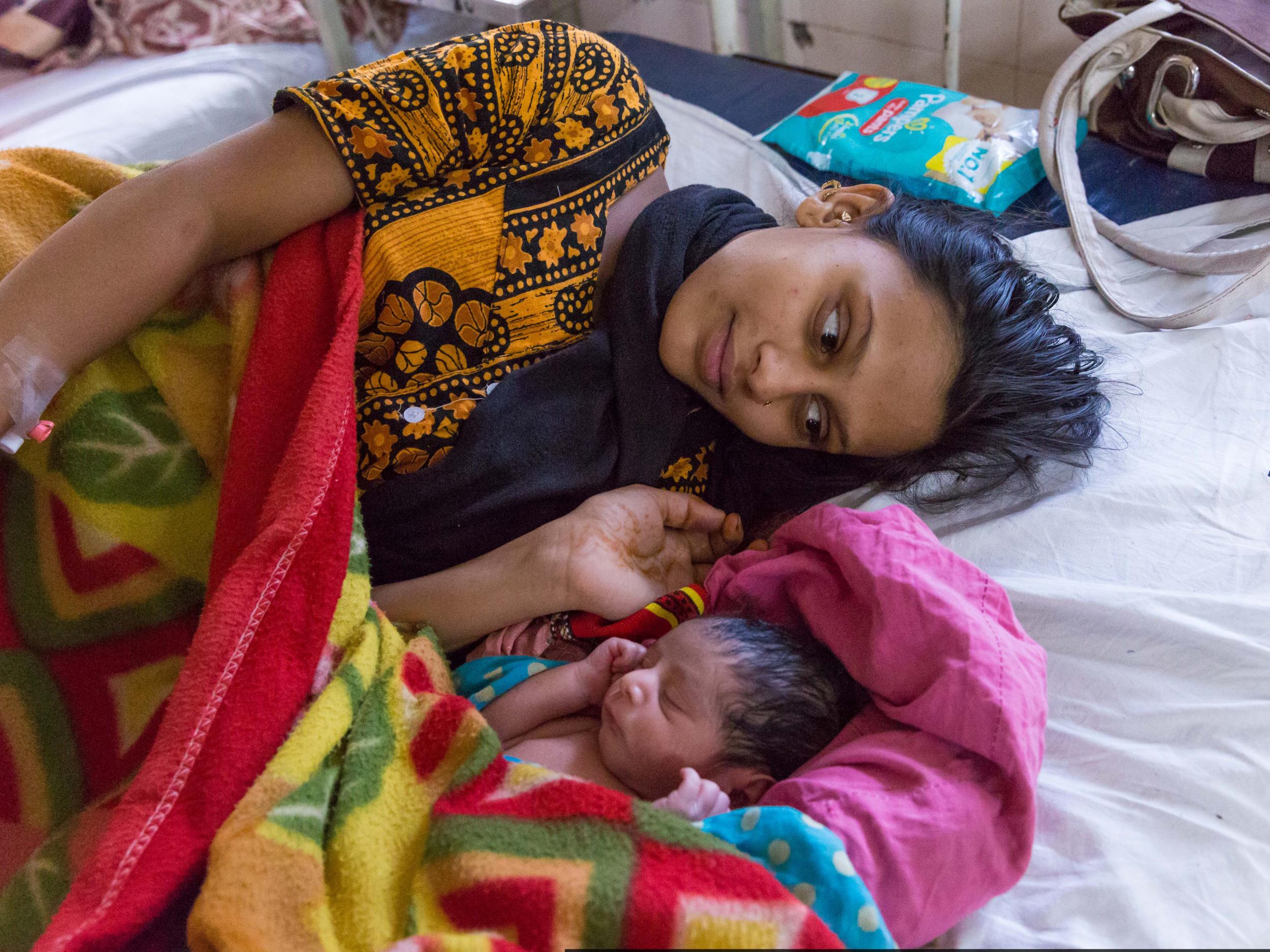Thousands more women could survive childbirth with new haemorrhage-preventing drug
Postpartum haemorrhage leaves 70,000 children a year without mothers and fighting for survival

The deaths of thousands of women during childbirth could be prevented by a new drug which can stop serious bleeding, without the need to store it in a refrigerator, according to a new clinical trial.
Led the World Health Organisation (WHO), the study found the “heat stable” drug was as effective at preventing haemorrhaging as medication which is the first choice treatment in countries like the UK.
It is now hoped that carbetocin could reduce the 70,000 deaths around the world each year caused by postpartum haemorrhage (PPH) – the leading cause of maternal death.
In the UK women get an injection of oxytocin after birth which helps promote contractions which expel the placenta and close off blood vessels which can cause excessive bleeding.
But oxytocin needs to be stored below 8C or it becomes ineffective and this means it is unsuitable in many low and middle income countries where 99 per cent of PPH deaths occur.
“Every day I see first-hand the devastating effects PPH can have on a mother and her family here in India,” said Dr Girija Mohanty a doctor at one of the trial sites in Cuttack, India. “It’s extremely frustrating to know that much of this suffering could be prevented if only we could reliably distribute and store medicines in a refrigerator.”
He said keeping medicines between 2C and 8C can be “impossible” at remote hospitals and clinics, but “even before medicines reach us they risk exposure to very high temperatures on long road journeys”.

PPH affects 14 million women a year, and children who lose their mothers are also much less likely to survive infancy.
The WHO-led “Champion” trial recruited 30,000 women from 10 different countries, including Uganda, Thailand and Egypt, to trial carbetocin.
To ensure that the findings were not subject to bias both drugs were kept in cold storage so neither doctors or patients new which treatment was being given – known as double blinding.
It found that blood loss of more than 500mls occurred in 14.5 per cent of the women given carbetocin, compared to 14.4 per cent of the oxytocin group.
While blood loss of more than 1,000ml occurred in 1.51 per cent of the carbetocin group, compared to 1.45 per cent of the women who received oxytocin.
Both results show carbetocin is as effective as oxytocin and its performance would likely be much better than oxytocin in real-life conditions where reliable refrigeration is not available.
While these trial findings are very promising the drug is not yet licensed by health regulators for use in any of these countries. The WHO is now reviewing its medical guidelines to consider a recommendation.
Professor Arri Coomarasamy from the University of Birmingham, who led the UK arm of the trial, said he was thrilled to be part of trialling the medicine which “has the potential to save the lives of thousands of women giving birth”.
“Refrigeration is readily available in the UK but many countries don’t have facilities to keep medicines cold, reducing their effectiveness. “This trial showed that heat-stable carbetocin is as effective in preventing PPH as the current standard of care stored under optimal conditions, and has the added benefit of not requiring refrigeration.”
The trial was funded by MSD for Mothers, a division of the drug company Merck, and carbetocin was provided by Ferring Pharmaceuticals, which developed the drug.
Join our commenting forum
Join thought-provoking conversations, follow other Independent readers and see their replies
Comments
Bookmark popover
Removed from bookmarks